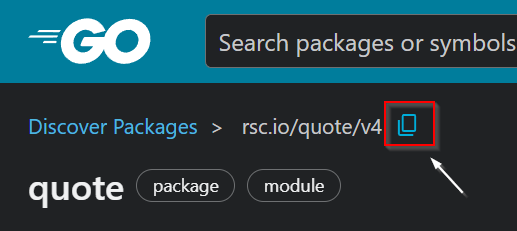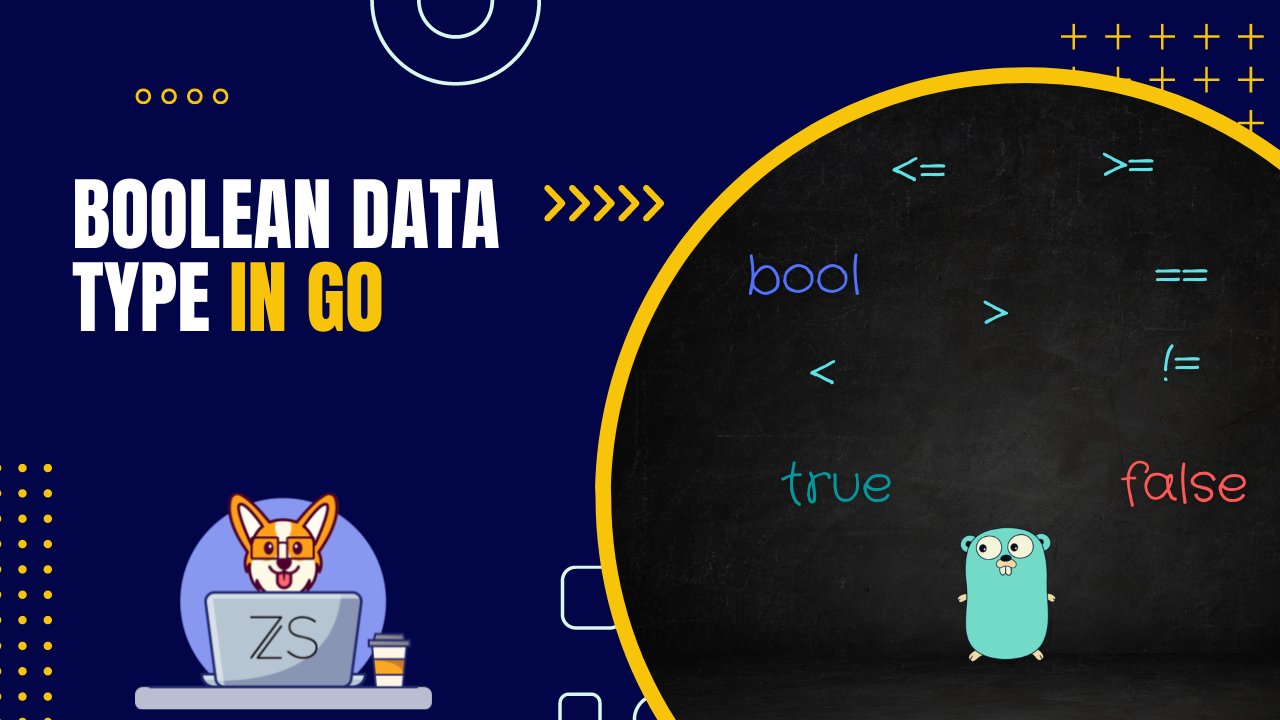How to Create Library and Import it Locally in Go (Golang)
-
 Zoran Stankovic
Zoran Stankovic - 24 Sep, 2022

In this post we will talk about how to use external libraries in our project and how to create a library in Go and use it locally.
We already mentioned in previous posts what are packages. But let’s make a recap. Packages are just a way to split your code into smaller units that has same purpose or function. And all go source files must belong to a package, each package must belong to a folder. We must have at least one package in any program or a library. There are two types of packages in Go:
- Executable - this is main package with a main function in it that we can run directly from the terminal.
- Non-executable or a library - is a collection of code that we package together so that we can use it in other programs.
Our workflow will look like this.
- We will first create a new
helloproject. - And use it to import external package. Here we will see how we can find a package and how to import it and use it.
- Then we will create a separate library. It will be simple
calculatorlibrary that we will then use inside ofhelloproject. Here we will learn how to create and import local package and use it inside of our project.
Let’s start with creating our hello project.
Open your terminal and navigate to the directory where you want to keep it. And make new directory named hello. Navigate to hello folder and create a go.mod file, using go mod init command with a module path. For the module path we can use example.com/username/hello. Let’s open our hello project in text editor.
go mod init example.com/[username]/hello // place your username here
Now open hello folder in your text editor.
Create new hello.go file. This package will be executable one. So our file will start with package main. And then we will import fmt library, followed by main function that will print Hello World! to the terminal.
package main
import (
"fmt"
)
func main() {
fmt.Println("Hello World!")
}
We can check this by using go run command.
go run hello.go
Now that we have our basic program. Let’s import external package.
To find Go packages you can check this URL https://pkg.go.dev/, and search for a package. We want to find a package named quote. The one that we are looking is rsc.io/quote/v4. Link: quote. Here we can see information about this package. To copy a module path press this copy button here and paste it in our import statement as a string.

// hello.go
package main
import (
"fmt"
"rsc.io/quote/v4"
)
func main() {
fmt.Println("Hello World!")
}
Now that we added our new import statement, we need to download this module and add it to our go.mod file. To do that, we need to execute go mod tidy command.
go mod tidy
This command ensures that the go.mod file matches the source code in the module. It adds any missing module requirements necessary to build the current module’s packages and dependencies, and it removes requirements on modules that don’t provide any relevant packages.
Let’s execute it.
After this command is executed module dependencies are automatically downloaded to the pkg/mod subdirectory of the directory indicated by the GOPATH environment variable. On Windows path is C:\Users\[user]\go. Here we can find pkg folder, then inside mod folder. When we open mod folder we can see our newly added dependency downloaded here.
go mod tidy command added a new require line to our go.mod file for required quote package.
// go.mod file in hello package
module example.com/zoran/hello
go 1.19
require (
rsc.io/quote/v4 v4.0.1
)
require (
golang.org/x/text v0.0.0-20170915032832-14c0d48ead0c // indirect
rsc.io/sampler v1.3.0 // indirect
)
quote package comes with couple of functions that we can use, for this example we will use Hello() function. When we check documentation we can see that Hello() function returns a greeting as a string.
Let’s change our hello message to use quote package. To use package function we need to use first package name quote then . (dot) and then name of the function Hello().
// hello.go
package main
import (
"fmt"
"rsc.io/quote/v4"
)
func main() {
fmt.Println(quote.Hello())
}
Let’s save and run our code. We can see that new hello message is printed.
go run hello.go // output: Hello, world.
Now that we know how to use external libraries, let’s see how to create a non-executable package or a library and use it locally. For this example we will create a simple calculator library with only Add function.
We need to navigate to the directory where we have our hello project and there create a new folder named calculator. Folders hello and calculator should be now beside each other.
- parent directory
- hello
- calculator
Navigate to calculator folder.
cd calculator
First we will create our go.mod file. To create it we will again use go mod init command with a module path example.com/username/calculator.
go mod init example.com/[username]/calculator // place your username here
We can now open our project in text editor. Create a new file named calculator.go. All the go files starts with package keyword and package name in our case calculator.
This will be the simple calculator with only one function named Add that will receive as parameters integers a and b and return integer as a result of a + b.
// calculator.go
package calculator
func Add(a, b int) int {
return a + b
}
Notice here how our Add function begins with an upper-case letter. This is the Go way to export the function so it can be used in other packages that import our calculator package.
To test that this library will compile we will use go build command.
go build .
Because this is not an executable program, build command wont build any executable files for us. This will only save the compiled package in the local build cache. The URL path to Go cache can be found in GOCACHE environmental variable.
Now we created our library but how we can use it in other programs?
Let’s open our hello project. We need to do the same thing as we did for our external library, we need to import it. Let’s import our calculator library.
// hello.go
package main
import (
"fmt"
"rsc.io/quote/v4"
"example.com/zoran/calculator"
)
func main() {
fmt.Println(quote.Hello())
}
To import our package locally we need to do one more additional step. We need to add a replace line in our go.mod file.
What is replace?
Let’s first explain what replace does. It replaces the content of a module at a specific version with another module version or with a local directory.
replace module-path [module-version] => replacement-path [replacement-version]
We have replace keyword with mandatory module-path which one we want to replace. Then optional module-version, here we can specify version to replace. If we omit the version number, all versions of the module will be replaced with the content on the right side of the arrow. On the right side of the arrow we have replacement-path at which Go should look for the required module. This can be a module path or a path to a directory on the file system local to the replacement module. If this is a module path, you must specify a replacement-version value. If this is a local path, you may not use a replacement-version value.
We can create this replace line from our command line using the go mod edit command.
go mod edit -replace example.com/zoran/calculator=../calculator
go mod edit -replace flag than module-path that we want to replace equal sign and then relative path to the replacement module. In our case it’s ../calculator. Which means go out of our current directory which is hello, to the parent directory and then there you will find calculator folder.
When we execute this command we can see that replace line was added in our go.mod file.
replace example.com/zoran/calculator => ../calculator
Next step is the same as before we need to execute our go mod tidy command:
go mod tidy
After execution this command found the local code in the calculator directory, and we can see that go.mod file for hello has new require statement where we require our calculator library. Because our calculator module doesn’t have a semantic version define yet. We can see the pseudo-version number generated after our module-path.
// go.mod file in hello package
module example.com/zoran/hello
go 1.19
require (
example.com/zoran/calculator v0.0.0-00010101000000-000000000000
rsc.io/quote/v4 v4.0.1
)
require (
golang.org/x/text v0.0.0-20170915032832-14c0d48ead0c // indirect
rsc.io/sampler v1.3.0 // indirect
)
replace example.com/zoran/calculator => ../calculator
Now let’s use our calculator library.
// hello.go
package main
import (
"fmt"
"rsc.io/quote/v4"
"example.com/zoran/calculator"
)
func main() {
fmt.Println(quote.Hello())
fmt.Println("2 + 3 =", calculator.Add(2, 3))
}
Let’s print a message “2 + 3 =” and then use our Add function to calculate 2 + 3. We will call Add function and give it 2 and 3 as arguments. To do this we need to use calculator as a prefix and then . (dot) and name of our function. This function will return 5. When we run our program we can see our hello message and also 2 + 3 = 5.
go run hello.go
// output
Hello, world.
2 + 3 = 5


